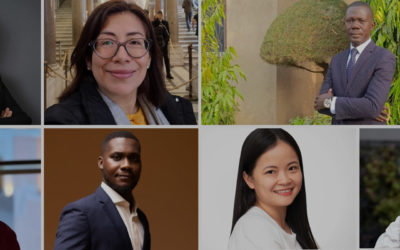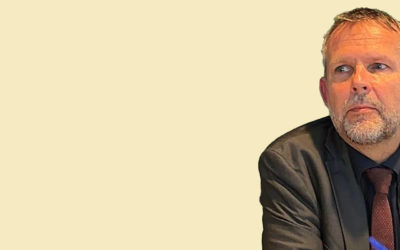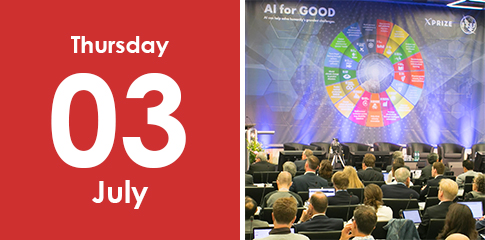Humanitarian aid is highly complex
There is no lack of complexity in solving humanitarian aid issues. Various policy circles work intensively on these issues on multiple levels. They understand that agreed-upon solutions are negotiated outcomes that can have a temporary validity only. Indeed, serving one interest (humanitarian aid) often comes at a cost for other interests. Universal validity and implementation on the ground take much work. Also, “on the ground” is subject to different interpretations.
Meanwhile, humanitarian aid is growing and more needed than ever. We know that over USD 31 billion was contributed to the UN agencies and the most prominent international NGOs for humanitarian aid in 2021. Furthermore, around 10 million non-profits contributed with a combined aid volume of nearly USD 700 billion in 2022. Humanitarians expect these numbers to increase by 3 to 7% per annum in these times of permacrises.
Solutions are sought: policy and technology
The immediate need for implementation on the ground is slowed down by a lengthy policy approach, competing priorities and negotiations at various levels. Relief organisations are looking into many directions, including the structural possibilities offered by digital technologies. These technologies may not solve the complexity of a disaster- or war situation, but they may help implement better, cheaper, and faster approaches.
Digital technologies are not easily accessible for a number of good reasons. An example of this is blockchain-powered Web3, which requires a substantial investment in knowledge building to understand how the revolutionary promise of blockchain: which is faster, cheaper, and transparent, can be applied to humanitarian aid. Blockchain is mainly developed globally in relatively decentralised ways as opposed to major information technology firms. Relying on large information technology firms may only provide a partial picture to policymakers. Commercial interests may also blur the picture.
Innovation born in the field
A bottom-up example of a successful approach could be instructive. Born from a humanitarian aid effort of a small relief organisation active on the ground in Syria, Aidonic.io is a seven-people Swiss-based private social enterprise entirely dedicated to developing and implementing Web3-solutions to overcome inefficiencies in humanitarian aid funding, -transferring and -distribution in disaster- and war zones. Since 2021, the blockchain technology successfully powered relief organisations’ efforts on the ground in 10 countries (in the Middle East Africa, the Caribbean and Eastern Europe, including Syria, South Sudan, Uganda, Trinidad and Tobago and Moldova). It also increased the delivery of humanitarian aid by 200% to 300% compared to conventional channels. For example, two or three families received support instead of one. Through the use of Web3-technology, many more billions would reach the people in need.
Value can be deployed through the internet globally within minutes instead of weeks or months. Given the capture of data at the lowest level, transparent reporting and measuring of impact can be done on all levels of aggregation, depending on the audience, online and in real-time, including social media integration. Based on tokenisation, a specific application of blockchain technology, the aid can be of all possible kinds: cash, water, medicine, food, blankets, tents, services, and so on, and it can lower the probability of fraud in the last mile massively. So yes, the promise of Web3 can be fulfilled. It does not need to wait for negotiated policy outcomes, nor does it have any aspiration or ambition of solving anything other than the humanitarian need. It just works: more value in the hands of more people, faster and cheaper. With this implementation technology in place, and as a result, some higher level of immediate alleviation of problems on the ground, there is more space for tackling adjacent policy issues unique to the situation at hand. This new reality can feed into new policy approaches to the complexities of humanitarian aid.
The impact we all want
While academically, the jury is still out, the reality on the different grounds, as faced by relief organisations using Web3 technology such as aidonic.io, is already being served. Born in the field, grassroots-level innovation, in this case using blockchain technology, can be crucial in solving whole or parts of intricate problems. It should inform policymakers, be piloted by humanitarians on the ground and be integrated into any forward response planning. It is this approach that may help to solve the grand challenge of humanitarian aid.
By Dr Eelco Fiole, a participant in the Executive Programmes in Environmental Governance and Policy Making at the Geneva Graduate Institute, a director of the board of Aidonic AG, holds a Master in Blockchain Technologies (Barcelona) and is a governance expert active in investments and financial technology.









“It also increased the delivery of humanitarian aid by 200% to 300% compared to conventional channels”
Is this something you can actually demonstrate? How did you actually measure this? Compared to what?
Doesn’t sound very credible to be honest, especially given such a small operation and team. Also the website does’t explain much….
Good point, Doug…
best to contact Aidonic, they will be happy to engage